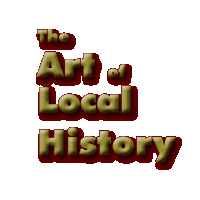
|
|
 |
Home |
 |
|
 |
Seminar |
 |
Research |
 |
|
 |
Contact |

Program Description
Art of Local History is a quarter long program, focused on the exploration of the role of the historian as an individual with creative vision, as a collector and interpreter of communal memories and as an agent of action and change in communities. We will act as artists, historians, activists, critical readers and thinkers, writers and involved members of our community.
Artists and historians both work within the bounds of culture to communicate alternative ways of knowing, both personal and communal. With the understanding of history as the production of cultural memory, we will investigate how stories are transmitted through literature, art and museums. Through an examination of the role of perspective in the telling of history, we will question the foundations of knowledge and the problems such questions create for historians. We will also read books and selected articles that examine themes of power in society, along with fiction and historical readings that will inform our sense of place in the Pacific Northwest. As an expression of these themes, we will create interdisciplinary exhibition elements and web sites with content that blurs the line between fiction and non-fiction. Our work here will focus on the Pacific Northwest and on social histories, and the ways in which these local histories are related to national and international economic, political and social forces. Writing will be focused on research, seminar essays, autobiography and interpretive writing workshops. Studio sessions will consist of developing proficiencies in graphic design technologies, exhibit design, web development and design, drawing, photography, collage, and book arts.
A major focus of
the quarter's work will be creating web based exhibits related to themes
in local history that will become a permanent part of the Olympia Historical
Society website. During the quarter we will also learn bookbinding in
order to create an autobiography. A wide variety of experts and activists
in local history will share their experiences with students and act
as mentors for our real world projects. We will learn about, visit and
understand the role of museums and see significant places in our local
and regional area that relate to broader themes in art and history.